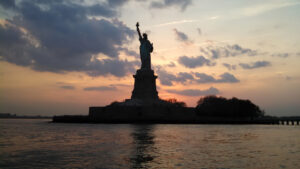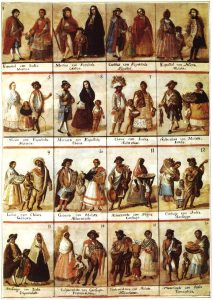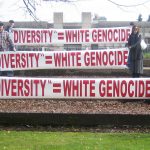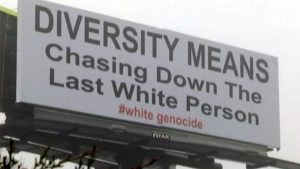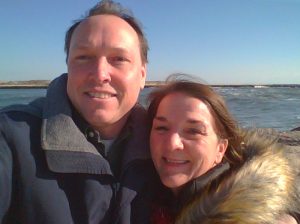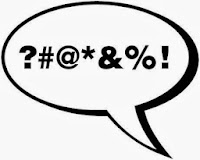Fire. Poison. Sharp knives. Guns. Being fearful of these things, especially in certain circumstances, is quite rational. I am afraid of re-breaking bones damaged in the past, for example. That is a wise thing to be. Irrational fears or phobias, on the other hand, are usually the result of some trauma.
 For example, when I was 11 years old I was camping with my family in the Catskill Mountains in New York. My sister and I were hiking into a ravine when suddenly a pack of feral dogs appeared and began surrounding us. My sister instinctively took off running as fast as she could. I froze. Not because I wanted to or had the presence of mind to think about the best course of action to avoid being bitten or torn to shreds, but because I was terrified. This is the only instance in my life when I was actually petrified—unable to move. Watching my big sister disappear in the undergrowth added to my traumatized state. I was alone in the woods and now, as they had ample time to do so, a pack of about ten dogs of various breeds and sizes, but none of them lap dog size, surrounded me.
For example, when I was 11 years old I was camping with my family in the Catskill Mountains in New York. My sister and I were hiking into a ravine when suddenly a pack of feral dogs appeared and began surrounding us. My sister instinctively took off running as fast as she could. I froze. Not because I wanted to or had the presence of mind to think about the best course of action to avoid being bitten or torn to shreds, but because I was terrified. This is the only instance in my life when I was actually petrified—unable to move. Watching my big sister disappear in the undergrowth added to my traumatized state. I was alone in the woods and now, as they had ample time to do so, a pack of about ten dogs of various breeds and sizes, but none of them lap dog size, surrounded me.
My mind raced. What should I do? What did the Girl Scout handbook advise. (I was not a girl scout, but my sisters had been and I memorized the book in the hopes of one day joining their ranks.) A cold line of sweat inched down my back. It was as sharp as a blade against my skin on that hot summer day.
a girl scout, but my sisters had been and I memorized the book in the hopes of one day joining their ranks.) A cold line of sweat inched down my back. It was as sharp as a blade against my skin on that hot summer day.
The dogs were snarling and growling lowering their heads and flaring their nostrils. How could this be happening?! The Girl Scout manual advised staying as calm as possible and avoiding eye contact. I did have a stick, (which I was using as a sort of walking stick during our hike). If I throw the stick, they might go after it. That did not make sense as I could not throw a two foot long stick far enough without moving more than I thought prudent under the current conditions. I CANNOT MOVE ANYWAY! I shouted silently to myself.
After what seemed like an eternity, I heard voices. Multiple family members were calling my name. The sounds broke the spell and I was able to respond. “Over here! In the ravine. I am surrounded by dogs!” They told me to stay calm and stay still. The dogs were now confused and distracted so I threw the stick in one direction and ran as fast as I could toward my siblings. They aided in my escape by throwing rocks at the now dispersing dogs. I was safe. I was saved. Whew!
That was a long time ago. The moral of the story is to keep calm and find a solution as every problem has a solution. Why am I sharing this with you now? Well, we all currently have a great deal to be afraid of. Democracy is under assault across the globe as human rights and civil rights are being dismantled and destroyed.
As one who has conducted thousands of investigations into claims of employment discrimination two words or phrases have always irked me. The first is homophobia. What exactly are people afraid of, catching homosexuality like one might catch COVID-19? The use of homophobia as a slur against members of the LGBTQI community was in use by 1969, long before the HIV-AIDs pandemic, which was used by some as an excuse to persecute, isolate and discriminate against those members of our society.
The same goes for Islamophobia. I have never met a non-Muslim person who ‘caught Islam’, although, I do know a few people who have converted voluntarily. A phobia is an irrational fear. Like my fear of dogs after the incident in the woods. For quite a while after the ‘petrified forest incident,’ which included a great deal of teasing by my siblings, I would become terrified any time I encountered a large dog. Gratefully, that condition went away after living with a Gordan Setter named, creatively, Gordie, from puppy-hood who was the sweetest, gentlest dog I’ve ever known (even after he grew to 70 lbs in weight).
We need to call things what they are. Anti-gay hate. Anti-Muslim hate. Since September 11, 2001 Anti-Muslim hate and acts of discrimination increased exponentially. People want a scapegoat. Someone to blame. A focus for their pain and grief. A group of terrorists committed horrendous acts of violence resulting in the deaths of thousands of people. That is a fact that should be obvious. Not all Muslims are terrorists nor are all Muslims terrorist sympathizers. Not all Germans are Nazis nor are all Germans Nazi sympathizers.
Fear of the other has been effectively manipulated as a tool by those who intend to divide and conquer us. Taking our many differences and distorting those differences into bad, negative and dangerous things is very effective, especially when used against people who live in isolated, monocultural communities. Today, the internet is available to connect and unite us and to provide information, should we choose to do more than a cursory search, on other cultures, religions, life styles, and characteristics.
I have written a great deal about the importance of words and how we use them. Fear is a specific tangible feeling and is often, as I wrote above, completely rational. A phobia should be treated by a professional therapist or it may have lifelong debilitating effects.
With all of the polarization, mis and disinformation that is causing so much pain right now, I urge you to choose your words carefully and to use them in context.
I would love to hear what you think.
Stay safe and well.
Onward!
~ Wendy
July 11, 2025
Wendy Amengual Wark
(She/Her)
Founder
Inclusion Strategy Solutions LLC
We***@***************gy.com
01-347-880-0777
InclusionStrategy.com

